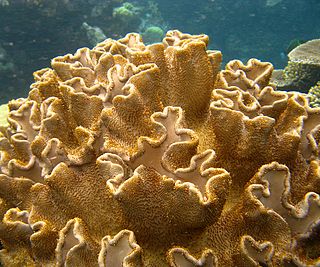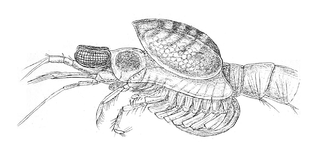
Mysidae is the largest family of crustaceans in the order Mysida, with over 1000 species in around 170 genera.

Sangeet Natak Akademi Award, also known as the Akademi Puraskar, is an award given by the Sangeet Natak Akademi, India's National Academy of Music, Dance & Drama. It is the highest Indian recognition given to people in the field of performing arts.
Red Eagles Hokkaido (レッドイーグルス北海道) are a professional ice hockey team based in Tomakomai city on Hokkaidō, Japan. They are members of the Asia League Ice Hockey.

Sphaeromatidae is a family of isopods, often encountered on rocky shores and in shelf waters in temperate zones. The family includes almost 100 genera and 619 known marine species. Within these genera, there are groups that share distinctive morphologies; further research may reclassify these genus-groups as separate families.

Roy Chiao was a Hong Kong actor, most notable in the United States for playing the minor villain Lao Che in the 1984 movie Indiana Jones and the Temple of Doom.

Acanthomysis is a genus of mysids, containing 28 species.
The George Westinghouse Medal is named for George Westinghouse and awarded to in honor of "eminent achievement or distinguished service in the power field of mechanical engineering" by the American Society of Mechanical Engineers. There is a Gold medal and a Silver medal. The silver medal may only be awarded to someone under 45 years of age.

Macrobrachium is a genus of freshwater prawns or shrimps characterised by the extreme enlargement of the second pair of pereiopods, at least in the male.
Cyclaspis is a genus of cumacean crustaceans in the subfamily Bodotriinae, containing the following species:

Alcyoniidae is a family of leathery or soft corals in the phylum Cnidaria.

The Bopyridae are a family of isopod crustaceans in the suborder Cymothoida. There are 1223 individual species contained in this family. Members of the family are ectoparasites of crabs and shrimp. They live in the gill cavities or under the carapace where they cause a noticeable swelling. Fossil crustaceans have occasionally been observed to have a similar characteristic bulge.

Candonidae is a family of ostracods, containing around 25% of all known species of freshwater ostracods. Around 75% of genera in the family are endemic to a single zoogeographic region. It contains more than 500 species, of which more than 300 are endemic to the Palearctic realm.
Mysidopsis is a genus of mysid shrimps in the family Mysidae. The sensitivity of these shrimps to water quality makes them suitable for bioassays. Mysidopsis bahia and Mysidopsis almyra, which are used frequently to test for pesticides and other toxic substances, are now classified as Americamysis bahia and Americamysis almyra.

Idiomysis is a genus of small mysids found in warm, shallow waters of Indian Ocean and Pacific.

Erythrops is a genus of marine crustaceans in the family Mysidae.
Marphysa is a genus of annelids belonging to the family Eunicidae.

Aegiochus is a genus of isopods in the family Aegidae, first described in 1885 by Carl Bovallius. The type species is Aega ventrosa.

Natatolana is a genus of crustaceans in the family Cirolanidae, first described by Niel L. Bruce in 1981. The type species is Cirolana hirtipes Milne Edwards, 1840.
Boreomysinae is a subfamily of large, mostly deep-water oceanic mysid crustaceans from the family Mysidae. The name, which can be translated as "northern mysids", comes from the genus Boreomysis G.O. Sars, 1869, established for Boreomysis arctica from the boreal waters of Atlantic. As more species have been discovered subsequently, the subfamily is considered panoceanic, and includes 38 species from two genera, Boreomysis and Neobirsteiniamysis Hendrickx et Tchindonova, 2020.













